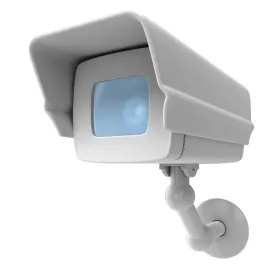On October 31, 2022, NLRB General Counsel Jennifer Abruzzo (“GC Abruzzo”) issued a memorandum in which she pushed for zealous enforcement and Board adoption of a “new framework” to protect employees from intrusive or abusive forms of electronic monitoring and automated management that interfere with protected Section 7 activity. GC Abruzzo asserted: it is “the Board’s responsibility to adapt the Act to changing patterns of industrial life” in the face of omnipresent employer surveillance and algorithmic productivity technology.
Throughout the memorandum, GC Abruzzo stated that “[c]lose, constant surveillance and management through electronic means” represent severe threats to employees’ basic ability to exercise their rights to self-organization. Specifically, she described the rise of complex surveillance — cameras, GPS wearables, or other similar productivity tracking technology, and how employers may use the technology to limit the confidentiality of employee actions. Furthermore, algorithm-based (or so-called AI) systems may present new issues including discriminatory impact on employees.
According to GC Abruzzo, employee conduct should be zealously protected under current Board and Supreme Court precedent — both (1) the ability for employees to engage in protected Section 7 activity; and (2) the ability for employees to maintain the confidentiality of their activities from an employer’s surveillance (or perceived surveillance).
In her memo, the GC suggested the Board presume a violation of Section 8(a)(1) in cases where an employer’s surveillance and/or management practices, taken collectively, tend to interfere with Section 7 rights. Under the GC’s framework, an employer defending against a presumptive violation must demonstrate that the practices at issue are narrowly tailored to address a legitimate business need. Moreover, GC Abruzzo urged the Board to balance the employer’s business need against employees’ Section 7 rights. Therefore, the Board could still find a violation despite the employer narrowly tailoring its practices to a legitimate business need, depending on the Board’s ultimate determination on the weight of employees’ Section 7 rights.
Further, under GC Abruzzo’s framework, even if the Board concludes that the employer’s use of technology does not violate the Act, the Board should still require the employer to disclose to employees the technologies it uses to monitor and manage them, its reasons for doing so, and how the information obtained is used (subject to certain exceptions, on a case-by-case basis).
Lastly, GC Abruzzo noted that several federal agencies have investigated employer monitoring and productivity tracking technology, and that any NLRB action would be in concert with other agencies, including the Federal Trade Commission (“FTC”), the Consumer Financial Protection Bureau (“CFPB”), the Department of Justice (“DOJ”), the Equal Employment Opportunity Commission (“EEOC”), and the Department of Labor (“DOL”). In fact, the NLRB General Counsel’s Office just recently signed interagency cooperation agreements with the FTC, DOJ, and DOL, intended to facilitate information sharing and coordinated enforcement between and among the agencies.
While many employers utilize some technological security and monitoring protocols, given the new memo, employers should examine how such technology is used and whether it is sufficiently tailored to minimize its impact on employee rights including Section 7 rights. Employers can preliminarily audit their practices by reviewing the following questions:
-
Does your business have a need for such technology?
-
Is the technology being used in a punitive way?
-
What are the underlying parameters of the technology’s decision-making — is it discriminatory?
-
What data is being collected? Is data being collected from employees’ off-the-clock behavior?
-
Are employees informed/aware of the technology?



 />i
/>i

